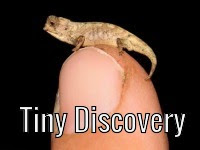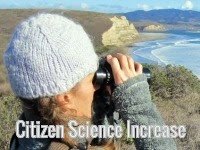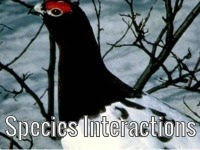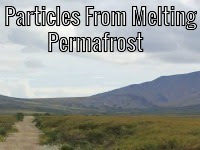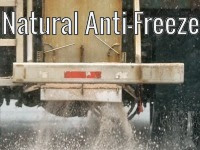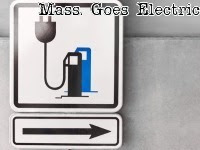📰 EwA News Digest: Tiny Reptiles, Alternative Road Salt Trials, and Electric Powered Miles
Caitlin Ball
Hi everyone!
This is Caitlin, Earthwise Aware’s spring intern, taking over the monthly EwA News Digest. I have enjoyed reading Mike’s emails each month, and I hope that I can live up to his precedent! In these digests, you will continue to find snippets of the latest environmental news from Massachusetts and around the world.
Since this is my first whack at writing the news digest, I thought that I would start things off small. A newly described species of chameleon from Madagascar may be the world’s smallest reptile. It is small enough to fit on an aspirin tablet! Not only is this species tiny, it also is endemic to an extremely small area of degraded forests in Northern Madagascar. Read more about these little guys at Mongabay.
In bigger news, EwA’s yearly report was recently published and highlighted some very important citizen science work. As it turns out, the world is catching on! The number of people participating in citizen science skyrocketed during the pandemic, helping to fill the research gaps created in its wake. This increase in citizen science is important to help maintain continuous data collection during a time when travel and formal research is somewhat restricted. Read more about it at The Conversation.
Demonstrating the importance of citizen science, the dataset for a new study regarding species interactions was collected primarily by citizen scientists in Norway. This preliminary study suggests that species interactions may be stronger in harsher climates. Though more data needs to be collected on predator populations to confirm trends, this research suggests that climate change may have implications for species interactions as some climates get harsher and some get more mild. Read the study synopsis on Ecology for the Masses or the original journal article for a more in-depth analysis.
Another impact of climate change may have more implications than we originally thought. It is well known that thawing permafrost is releasing greenhouse gasses into the atmosphere, however new research suggests that thawing permafrost may also be releasing ice-forming particles that have the potential to impact weather. These ice-forming particles, called ice-nucleating particles, help clouds freeze at warmer temperatures which could change cloud patterns. Future studies need to investigate if these ice-forming particles from permafrost are actually getting into the atmosphere. Read more about these new studies here.
While ice may be forming more easily in clouds, we are trying all we can to keep ice off our roads. Traditional road salts work by lowering the freezing temperature of water, but they can be damaging to the environment- especially since the U.S. snowbelt cities use 20 million tons of road salts per year. Some fish, insects, and plants create natural antifreeze compounds in their bodies, which may provide an alternative to traditional road salting. Read more about these road salt alternatives at The Conversation.
As we are developing alternatives to harmful road salts, Massachusetts law makers are addressing another environmental issue within the transportation sector. Massachusetts Governor Charlie Baker recently announced plans to phase out the sale of new gas-powered cars by 2035. This makes Massachusetts the second state in the nation (behind California) to commit to phasing out gas cars. Find more detailed information regarding this plan at Scientific American.
That is all for this month! Hope that everyone has a wonderful rest of their February.
Best,
Caitlin

